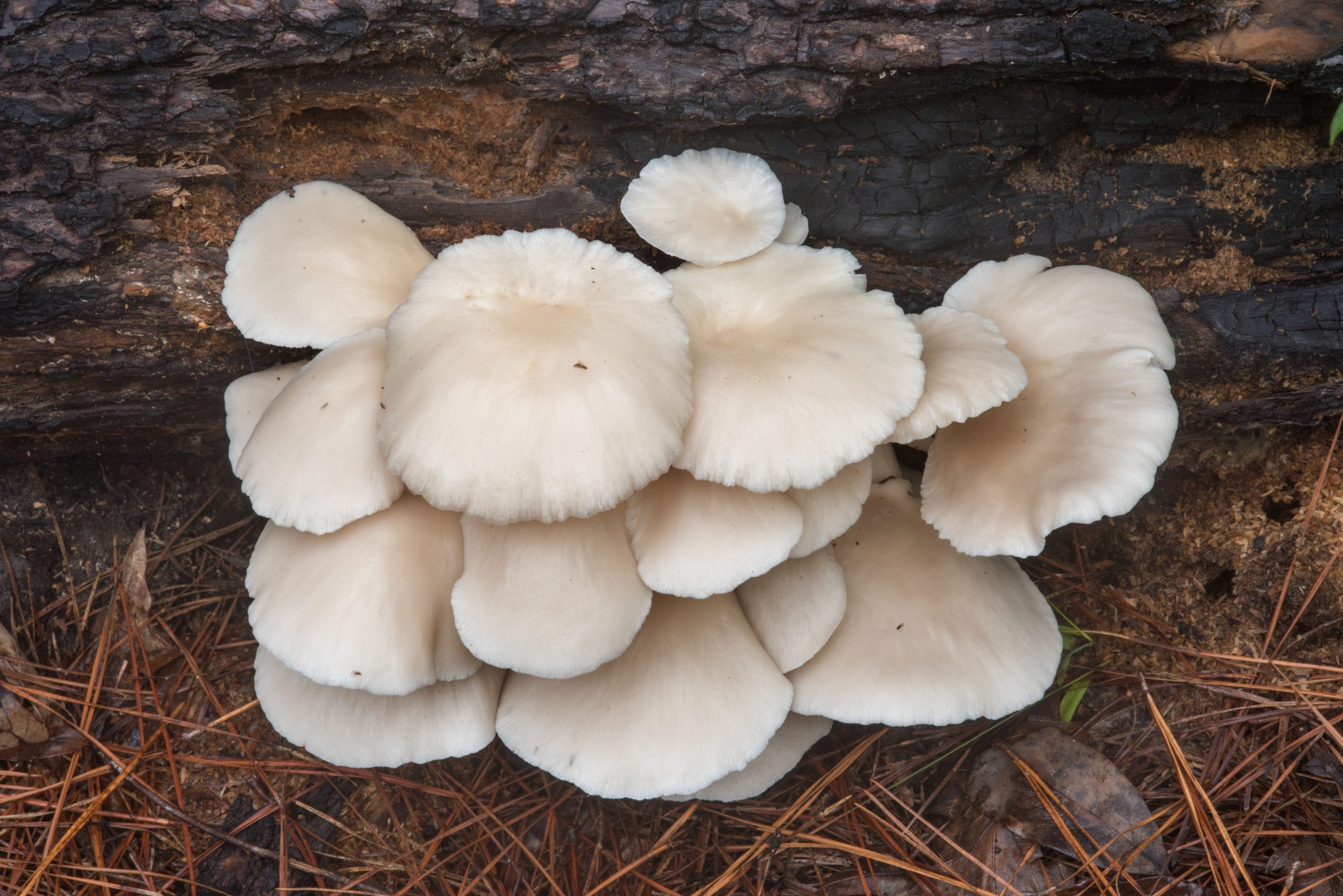Oyster mushrooms are one of the most accessible and rewarding wild mushrooms to forage in the UK. This article provides an in-depth look at oyster mushrooms, including identification tips, culinary uses, cultivation, and their ecological significance.
Identification of Oyster Mushrooms
- Cap: Shell or oyster-shaped, often white, gray, or pale brown.
- Gills: Whitish or cream, running down the stem.
- Stem: Short, if present, and centrally or laterally attached.
- Spore Print: White to lilac-gray.
Edibility and Culinary Uses
- Taste and Texture: Delicate flavor, chewy texture.
- Cooking Tips: Great sautéed, in stews, or soups.
Habitat and Distribution in the UK
- Location: On hardwood trees, especially beech and oak.
- Season: Spring through autumn, but can also be found in winter in mild climates.
Oyster Mushroom Varieties in the UK
- Pearl Oyster Mushroom (Pleurotus ostreatus): Most common type.
- Blue Oyster Mushroom (Pleurotus columbinus): Known for its beautiful blue hue.
Cultivation of Oyster Mushrooms
- Growing Kits: Available for home cultivation.
- Suitable Substrates: Straw, wood chips, or grain.
Ecological Significance
- Role in Nature: Decomposer, breaking down dead wood.
- Wildlife Interactions: Part of various wildlife diets.
Caution and Look-alikes
- Poisonous Look-alikes: Be aware of the poisonous Elm Oyster (Hypsizygus ulmarius), which looks similar but has a different gill attachment.
Conclusion
Oyster mushrooms are not only an excellent edible wild mushroom found in the UK but are also important ecologically. Their unique appearance and pleasant taste have made them a favorite among foragers and chefs alike.
Those interested in foraging oyster mushrooms should equip themselves with a reliable field guide or consult an experienced mycologist to avoid confusion with similar-looking species.
For those not keen on foraging, oyster mushrooms are often available in stores, and home cultivation kits provide an exciting way to grow your own.
FAQ
Q: Can oyster mushrooms be dried for later use?
A: Yes, they dry well and can be rehydrated for later use.
Q: What are the health benefits of oyster mushrooms?
A: Oyster mushrooms are low in calories and contain vitamins like niacin and riboflavin, as well as minerals such as iron and zinc. Some studies have also suggested potential cholesterol-lowering effects.
Khalid Irfan is a Fitness expert who enjoys spending time in gym. He also enjoys being in the outdoors and exploring new opportunities whenever they arise as well as researching new topics to expand his horizons.

Leave a Reply